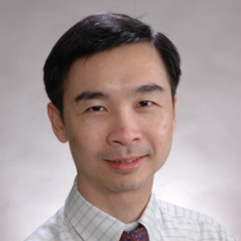
Professor Tong Yen Wah
College of Design and Engineering
National University of Singapore
Waste-to-Resource: Innovation and Research towards Low Carbon Transition
About the Talk
Technologies for waste treatment and conversion to energy have been around for more than 50 years. In particular, the most widespread and commercially viable process is anaerobic digestion of organic matter into biomethane, while gasification of biomass to hydrogen and syngas has also been commercialized in the last 10 years. However, these technologies and industries are almost always centralized and are of very large scales for the purpose of economies-of-scale. They are usually also located outside of the city or urban environments, and not even in the industrial areas in certain countries.
The scientific challenge and technological research is thus in modularizing and down-translating these processes, to enable them to be operated in a modular manner within a megacity such as Singapore and Shanghai, and to adapt them to a manageable urban system as potential distributed energy sources. In addition to enabling a local material and mass cycle to be closed loop, it also minimizes the need for transportation of wastes to centralized facilities, which is one of the major energy consumption activities that has not always been accounted for. A crucial issue that arises in sustainable megacities is that of the cycle of energy, water and waste. The key research question: How can we attain security and resilience in these areas given global uncertainties, resource limitations, and the high-density living environment?
About the speaker:
Professor Tong Yen Wah joined the Department of Chemical and Biomolecular Engineering at the National University of Singapore (NUS) in 2001 after graduating from the University of Toronto with a PhD in Chemical Engineering. His expertise is in biomaterials research for tissue engineering and in bioenergy from food wastes and biomass wastes, with over 250 publications and 15000 citations. His recent works in food wastes management has been successfully commercialized with distributed anaerobic digesters that can be effectively used in cities through a spin-off company from NUS.
